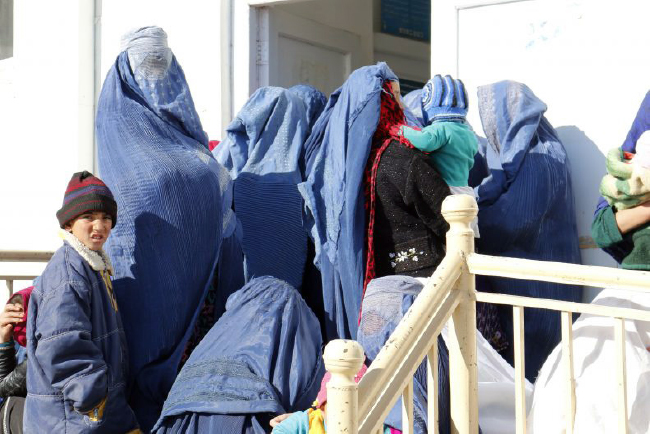Within the last two decades, Afghan women have been the casualty of great changes and several incidents. Women were restricted within the four walls without the right to get education two decades ago. However, their active presence in educational centers and active role in social arenas in recent years filled us with a great sense of hope initially. Women’s participation in educational centers and their engagement in social and economic activities, with restriction though, triggered public optimism for the betterment of women’s situation. The positive discrimination implemented regarding women by international community and a ripe political environment enabled Afghan women to become members of parliament and promote to the position of minister.
The hope for future prompted more girls to study, get job and stand for their rights. Accelerating demands for real change in a society will lead to frustration among women. That is to say, women will quickly learn the concepts of independence, income individualism and so on and demand them from their community without seeing any fundamental changes in the community. Many laws have been approved for the progress of women’s status, but there seems little acceptance and tolerance to implement them. It should be noted that development will take place with changes in social, political and legal arenas. There is no exception for changes in women’s state and cultural development. A colossal evolution will not take place as a result of superficial change at the level of women’s education or income. This fact will be risky for us and the society will witness a female generation with great demands in their minds but no one will realize them. These girls will feel rejection from the main body of society. Hence, women’s accelerating demands, on the one hand, and society’s movement at a snail’s pace, on the other hand, have already led to women’s self-burning and running away from home.
If we seek to balance the speed between girls’ education and the level of society’s realization and gradual cultural development, we will have to bring changes simultaneously in public education, policies and laws. Otherwise, we will see a gap between educated women and society’s body. This gap is currently seen since women do not support the demands of female civil and women’s rights activists.
To create fundamental changes, we have to pay attention to two significant elements: first, generating public demands in men and women. Second, the presence of women or representatives in line with the “Review of women’s status” in positions of leadership and influence in macro policy is important.
To bring positive changes in women’s situation, witness their effective role in family and society, and witness decrease fundamental violence against them, we should be able to make the Islamic and human values as public demands in the society in a way that not only women but also men think about and practice upon them. If men and women realize the harm of violence against women and the negative result of illiteracy – which is prevailing in the society – people will gradually support the agenda for eliminating the challenges. So, the public demand will be formed for reviewing women’s situation rather than changing the law or implanting some concepts in women’s minds without localizing them.
On the other hand, women’s accessibility to the high position of leadership and their serious effect on government’s decision will catalyze culture-building. This fact is in need of women’s support and trust among them. It is likely that we need to create an atmosphere for “discourse” so as to achieve this goal and gain women’s major support in the process of reviewing women’s position. In this discourse, women from different spectrum of thoughts and all female groups, including different religious, ethnic and racial groups should take part with the aim of differentiating between real and unreal demands, declaring and monitoring the demands and ensuring the fulfillment of officials’ responsibility in this regard.
Currently, the women in the line of supporting women’s rights in social and political arenas are not able to represent all Afghan women since there is a wide gap between their terms of discourse and women’s daily demands. For instance, these women focus on individual freedom and create their own criteria for it. However, there are women, in some parts of the country, who are deprived of their basic rights such as education, literacy, primary profession and modern concepts – this is believed to be the imbalance between speed of changes in the society’s body and some apparent laws.
Home » Opinion » Afghan Women and Need for Widespread Discourse
Afghan Women and Need for Widespread Discourse
| Horriah Bayani

